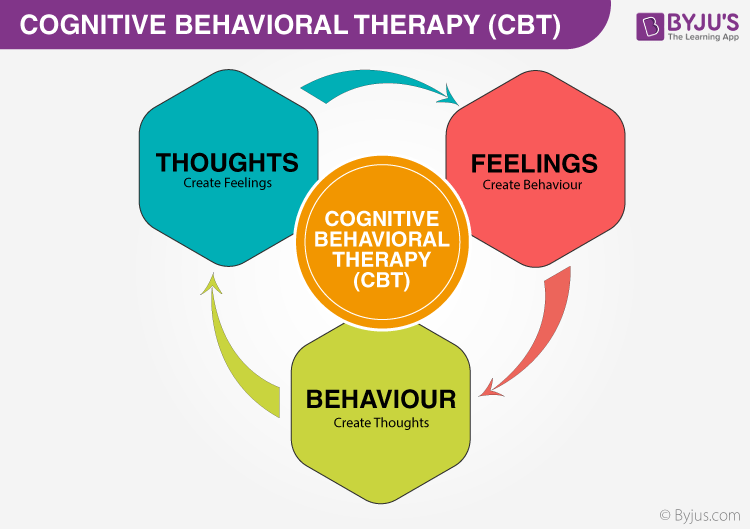What is Cognitive Behavioural Therapy?
“Cognitive Behavioural Therapy is a type of psychotherapeutic treatment that influences the behaviour of the patients and helps them understand thoughts and feelings.”
Cognitive Behavioural Therapy is a talking therapy that has a central place in evidence-based practice and has been backed by therapists around the world. It is recommended by the National Institute for Clinical Excellence (NICE) for a range of psychological problems.

Our thoughts and behaviour play a major role in our behaviour. The main motive of this therapy is to teach the patients how to control the way they interpret and deal with things in their environment.
Compared to other forms of therapy, this therapy focuses on the ‘here and now’ problems. It could also help you to gain more awareness of how you think about yourself, others and the world. It is a highly collaborative therapy where the patient and the therapist work together to identify how to understand useless thought patterns that impede the patient’s daily life.
This therapy is effective for a range of psychological problems including depression, anxiety, marital issues and severe mental illness. It has led to an improvement in the quality of life.
By recording and monitoring the person’s thoughts during situations that lead to emotional trauma, we can contribute to problems such as depression and anxiety. Congenital Behavioural Therapy helps a person learn to reduce these emotional problems by:
- Identifying distortions in their thinking.
- Observing their thoughts to understand what is going on in their mind.
- “Stand back” from their thinking to consider situations from different viewpoints.
For effective Congenital Behavioural Therapy, the patient must openly discuss his thoughts, beliefs, and behaviours, and should willingly participate in exercises during sessions.
Also Read: Nervous System Diseases
Treatments under Cognitive Behavioural Therapy
Congenital Behavioural Therapy is an effective treatment for many psychological conditions. These include:
- Mood disorders, such as depression and bipolar disorder
- Anxiety disorders, including panic disorder, specific phobias – fear of heights, animals, and compact spaces, social phobia- social anxiety disorder, generalized anxiety disorder, obsessive-compulsive disorder and posttraumatic stress disorder
- Bulimia nervosa and binge eating disorder
- Body dysmorphic disorder (i.e., body image)
- Substance use disorders (i.e., smoking, alcohol and other drugs)
CBT can also be used to help people with:
- Psychosis
- Hypertension
- Insomnia
- Chronic (persistent) pain
- Habits such as pulling of hairs, picking of skin, and tics
- Sexual and relationship problems
- Chronic fatigue syndrome
- Long-standing interpersonal problems
A similar framework is used to treat different emotional problems in this therapy. However, the approach and strategies vary and are customized to address each specific problem.
Conclusion
CBT is an effective therapeutic approach as it is:
- Structured.
- Problem-focused and goal-oriented.
- Proven strategy and skills.
- Emphasizes the importance of a good, collaborative therapeutic practice.
- A proven relationship between the therapist and client.
This was a brief discussion about how Cognitive Behavioural Therapy works, and how is it applied to treat people experiencing emotional distress.
Also Read: Difference between Neurosis and Psychosis
Stay tuned with BYJU’S to learn more about Cognitive Behavioural Therapy and other treatments to improve mental health.

Well explained about CBT